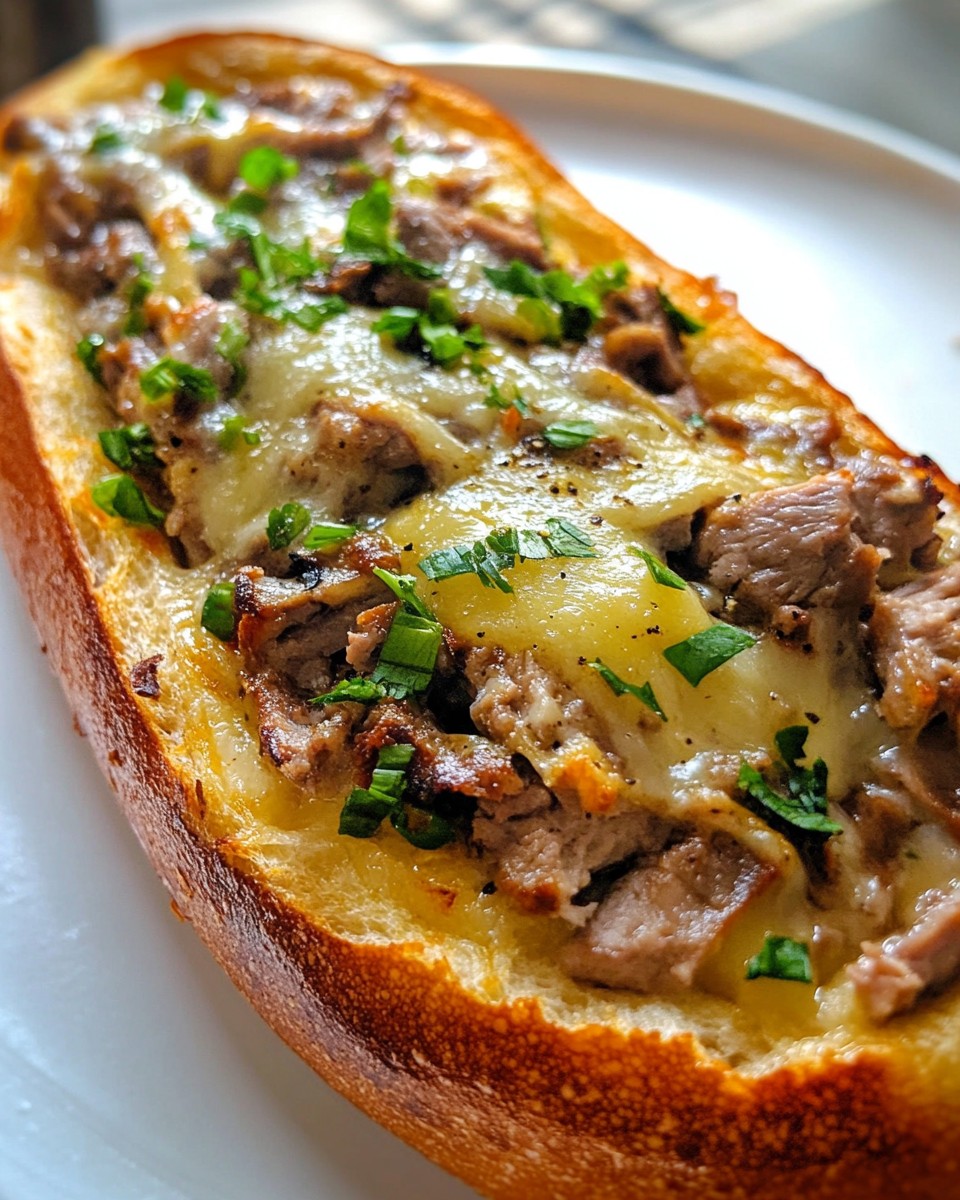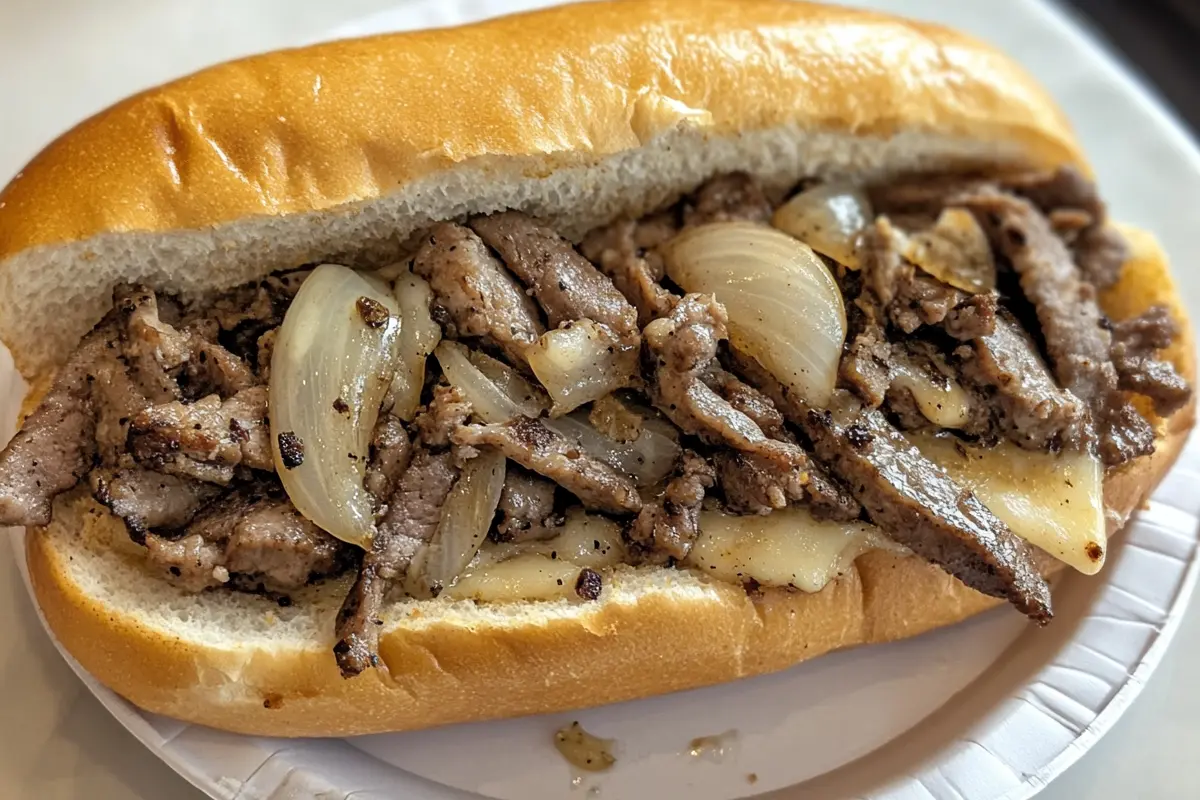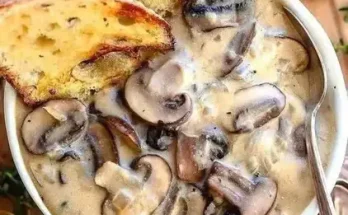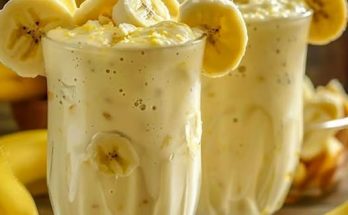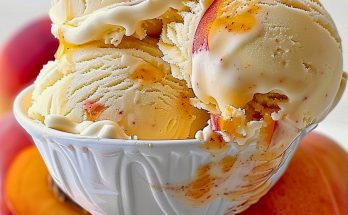Cheesesteak Sandwich Recipe are a beloved classic, representing the ultimate comfort food. Originating in Philadelphia, this hearty sandwich has won hearts worldwide with its combination of tender beef, melted cheese, and a soft roll. The perfect balance of flavors and textures makes the cheesesteak sandwich a go-to choice for a satisfying meal. Whether you’re a first-time cook or a seasoned chef, mastering the art of making the perfect cheesesteak sandwich is rewarding and delicious!
History of Cheesesteak Sandwich Recipe
The cheesesteak sandwich traces back to the 1930s in Philadelphia, where Pat and Harry Olivieri created the original version at their hot dog stand. Legend has it that they initially served a simple steak sandwich without cheese, which quickly became popular among taxi drivers. It was only later, in the 1940s, that cheese was added, evolving the sandwich into the iconic cheesesteak we know today.
Variations Around the World for Cheesesteak Sandwich Recipe
While the Philly Cheesesteak remains the most famous version, there are global variations:
- Italian Cheesesteak: Includes marinara sauce and mozzarella cheese, giving it a pizza-like flavor.
- California Cheesesteak: Features avocado, adding a creamy twist to the traditional recipe.
- Chicken Cheesesteak: A leaner option that replaces beef with sliced chicken.
- Vegan Cheesesteak: Uses plant-based meat alternatives and vegan cheese to cater to plant-based eaters.
Essential Ingredients for Cheesesteak Sandwich Recipe
Creating a mouthwatering cheesesteak starts with the right ingredients. Here’s a list of essentials:
- Beef: Ribeye is the preferred cut, known for its tenderness and flavor. Alternatively, you can use sirloin or flank steak for a leaner option.
- Cheese: Traditional options include American cheese, Cheez Whiz, or provolone. For a sharper flavor, try aged cheddar.
- Bread: A soft hoagie or sub roll is ideal, slightly toasted to hold up the juicy filling.
- Onions: Sautéed onions add sweetness and depth of flavor.
- Oil or Butter: For cooking the steak and toasting the bread.
- Seasonings: Salt, pepper, and garlic powder enhance the steak’s flavor.
Possible Substitutions and Dietary Options
- Vegetarian Option: Use plant-based steak strips or mushrooms as a substitute for meat.
- Gluten-Free Option: Use gluten-free rolls or wraps.
- Low-Fat Option: Opt for lean cuts of beef or chicken and low-fat cheese.
Step-by-Step Cooking Instructions
Preparation Time: 10 minutes | Cooking Time: 20 minutes | Total Time: 30 minutes
- Prepare the Ingredients:
- Thinly slice the ribeye steak across the grain to ensure tenderness.
- Slice onions and other toppings like mushrooms or bell peppers if desired.
- Cook the Onions:
- Heat a skillet over medium heat, add a splash of oil, and sauté the onions until they are golden and caramelized (about 5-7 minutes). Remove and set aside.
- Cook the Steak:
- Drizzle a bit more oil into the skillet and raise the heat to high.
- Add the sliced steak, seasoning with salt, pepper, and garlic powder.
- Cook until browned, stirring occasionally (about 5 minutes).
- Add the Cheese:
- Reduce the heat to low, arrange the cooked steak into separate piles, and top each pile with cheese.
- Cover with a lid for 1-2 minutes, allowing the cheese to melt.
- Toast the Bread:
- Split the hoagie rolls and place them open-side down on a griddle with a touch of butter until lightly toasted.
- Assemble the Sandwiches:
- Fill each hoagie roll with cheesy steak, adding onions and any other desired toppings.
- Serve Immediately:
- Enjoy hot with your favorite sides like fries, onion rings, or a simple salad.
Delicious Variations of Cheesesteak Sandwich Recipe
- Buffalo Chicken Cheesesteak: Replace steak with shredded chicken and toss it in buffalo sauce. Use blue cheese or ranch dressing for a spicy twist.
- BBQ Cheesesteak: Add barbecue sauce to the steak while cooking, using cheddar cheese for a smoky flavor.
- Mushroom Swiss Cheesesteak: Add sautéed mushrooms and top with Swiss cheese for an earthy variation.
- Jalapeño Popper Cheesesteak: Mix in diced jalapeños and cream cheese for a spicy, creamy kick.
Storage and Reheating Tips
- Storing Leftovers: Store leftover cheesesteak filling in an airtight container in the refrigerator for up to 3 days. Store the bread separately to prevent sogginess.
- Freezing: You can freeze the cooked filling for up to 2 months. Let it cool completely before transferring to a freezer-safe bag or container.
- Reheating: Reheat the filling in a skillet over medium heat, adding a splash of water to retain moisture. For microwaving, cover with a damp paper towel and heat in 30-second intervals until warm.
Serving Suggestions for Cheesesteak Sandwich Recipe
- Sides: Pair your cheesesteak with classic sides like French fries, onion rings, potato chips, or a simple green salad.
- Dipping Sauces: Serve with ketchup, aioli, or even a spicy Sriracha mayo for added flavor.
- Garnishes: Add pickles, banana peppers, or sliced jalapeños for a tangy or spicy touch.
- Presentation: Serve the cheesesteak on a wooden board or tray, garnished with chopped parsley or cilantro for a fresh look.
Health Benefits of Cheesesteak Sandwich Recipe
While cheesesteak sandwiches are often viewed as a treat rather than a health food, they do offer certain nutritional benefits when prepared with fresh, quality ingredients. Here are some of the potential health benefits:
1. High in Protein
- The ribeye steak, or any lean beef cut used in the cheesesteak, is a great source of protein. Protein plays a vital role in supporting muscle growth, tissue repair, and overall body health.
- A single cheesesteak can provide a substantial portion of your daily protein needs, making it a fulfilling meal.
2. Rich in Iron
- Beef is a good source of iron, which plays a crucial role in maintaining healthy red blood cells and transporting oxygen throughout the body.
- This makes cheesesteak sandwiches beneficial for boosting energy levels and combating fatigue, especially for those with low iron levels.
3. Source of Vitamin B12
- Beef is also a significant source of vitamin B12, essential for nerve function, red blood cell production, and DNA synthesis.
- Consuming a cheesesteak can help maintain optimal energy levels and support brain function due to its B12 content.
4. Carbohydrates for Energy
- The hoagie or sub roll provides carbohydrates, the body’s main energy source. Carbs are crucial for providing the energy needed for daily activities and maintaining stable blood sugar levels.
5. Calcium from Cheese
- Cheese adds calcium to the sandwich, supporting strong bones and teeth. It’s also linked to improved nerve function and muscle contractions, making it a valuable addition to the meal.
6. Dietary Versatility
- With the inclusion of vegetables like sautéed onions, mushrooms, and peppers, cheesesteaks can be made more nutritious, offering fiber, vitamins, and minerals.
- Opting for whole grain or whole wheat rolls can increase the fiber content, aiding digestion and promoting a feeling of fullness.
Tips for a Healthier Cheesesteak
- Lean Cuts: Opt for lean cuts of beef like sirloin or even use chicken for a lower-fat option.
- Veggie Boost: Add a generous amount of sautéed veggies like peppers, onions, and mushrooms for added fiber and nutrients.
- Cheese Choices: Choose low-fat cheese or a reduced amount of cheese to decrease fat intake while retaining flavor.
- Whole-Grain Bread: Use whole-grain hoagie rolls to boost fiber intake, which supports digestion and prolonged satiety.
FAQs About Cheesesteak Sandwiches
Q1: What cut of meat is best for cheesesteak sandwiches?
A1: Ribeye steak is the traditional and best choice for cheesesteaks due to its marbling and tenderness. However, other cuts like sirloin or flank can be used for a leaner option.
Q2: Can I make a cheesesteak without cheese?
A2: While cheese is a signature ingredient, you can make a steak sandwich without it and still enjoy the flavors of tender beef and caramelized onions.
Q3: What type of cheese is most authentic for cheesesteak sandwiches?
A3: Cheez Whiz, provolone, and American cheese are the most authentic choices. Provolone offers a mild, nutty flavor, while Cheez Whiz delivers a creamy, rich taste.
Q4: How do I make a vegan cheesesteak sandwich?
A4: Use plant-based steak strips or marinated portobello mushrooms as a meat substitute, along with vegan cheese and a gluten-free roll if needed.
Q5: How can I prevent the bread from becoming soggy?
A5: Toast the bread lightly before adding the filling and avoid overfilling with moist ingredients like sauce. Serve immediately to maintain the bread’s texture.
Conclusion
Cheesesteak sandwiches are a timeless classic that brings together the best of tender beef, melted cheese, and fresh bread. Whether you prefer the original Philly style or want to experiment with exciting variations, this guide covers all the essentials for making the perfect cheesesteak at home. So, fire up your skillet and treat yourself to this irresistible, flavor-packed sandwich!
